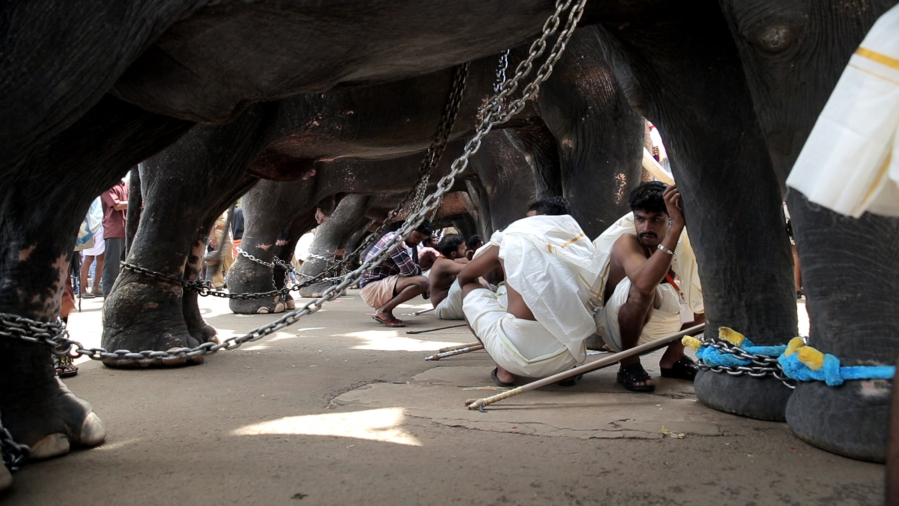When she was barely beyond toddling around her native south India, Sangita Iyer already showed the tendencies of an investigative journalist. It was normal for her grandmother to take her to “an amazing temple where elephants were used in rituals of all kinds,” she said; it was less normal for the 3-year-old to ask tough questions about those elephants and not accept distractions for answers.
“Grandma, how come this elephant has shackles on his legs?” she recalls asking. It made no sense, she said, because in Hindu culture elephants are “the purest and most sentient of all living beings.” They’re the living embodiment of Lord Ganesha, a wise and loving Hindu deity. How could Hindus claim to honor and worship elephants while imprisoning them?
Her grandmother responded by buying her shiny ankle bracelets to serve as her own version of elephant shackles. If that was supposed to be cute, it made even less sense to the little girl — already a thinker. Years later, she said, her dying grandmother reminded her about the episode and about Iyer’s “early and deep connection with elephants. Her words hit me like a dagger,” Iyer said in a phone interview with The Columbian. “I have felt a deeply spiritual, soulful bond with elephants ever since my childhood.”
Now an adult wildlife journalist and documentary filmmaker based in Toronto, Canada, Iyer will visit Vancouver on Sunday to host a screening of her 2016 film, “Gods in Shackles,” at WareHouse ’23. She’s on a global mission to raise awareness of the plight of Asian elephants in India — especially male (bull) elephants, which are shackled, marched around, starved and beaten during southern India’s religious ritual season (December through May). Thanks to heat, continued abuse and exhaustion, their wounds fester instead of healing, and they die protracted deaths, she said. Twenty-three Asian elephants died in captivity in India between January and August of this year, Iyer said.




